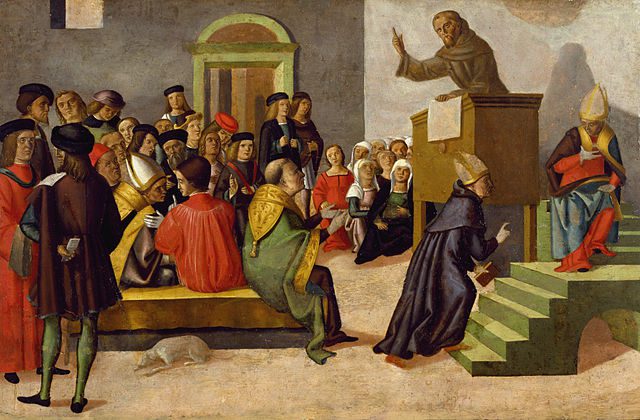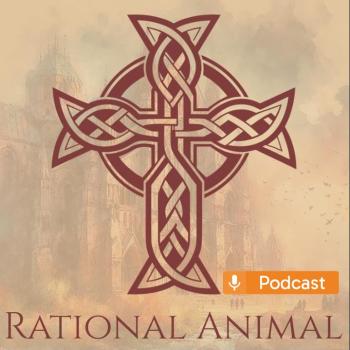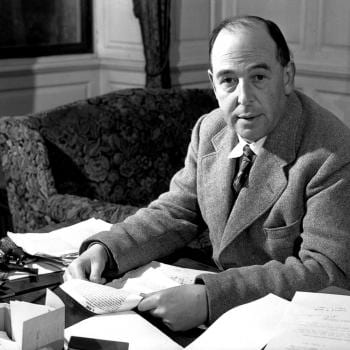
A Franciscan Monk Preaching (anonymous: Italy: between 1500-1525) [public domain / Wikimedia Commons]
***
This is a reply to some key portions of atheist Neil Carter‘s article, “Apologetics: Preaching to the Choir” (5-14-17). His words will be in blue.
*****
I’ve been actively studying and sharing Christian apologetics for 36 years and have been a full-time Catholic apologist since 2001, so I think I have a few insights to add to this discussion. Neil begins by stating:
Apologetics isn’t for the lost, it’s for the already saved.
Generally speaking, apologetics books and articles are written by Christians and for Christians, no matter who their authors claim are the target audience of their work.
I wholeheartedly agree (which might surprise Neil). We apologists already know this. Our purpose is mostly to show Christians that their faith is rational, is not inimical to rationality or science or good philosophy, is cogent and logical, and can withstand challenges from all quarters. This makes them more confident and aware that Christianity is not fideism (blind faith), and that the notion of a harmonious faith and reason is not an oxymoron. We often explain our work as “removing roadblocks.”
The only people who are ever impressed with the arguments therein are people who are already “within the fold.” I virtually never hear of people actually coming to the faith through work of an apologist.
This is often true, but not totally. In my own work alone, I have received several hundred letters telling me that my work helped folks move from Protestantism to Catholicism (a change within Christianity, but still a conversion and move from one religious worldview to another). Sometimes they even move from atheism or religious nominalism (the latter was my own background) to Christianity and/or Catholic Christianity. So it happens. But (in agreement generally with your remarks) I am usually writing to and for Christians, because those are the ones overwhelmingly likely to be convinced of anything I am arguing for.
Apologetics isn’t about outreach, it’s about retention. It is an attempt to reduce the attrition rate within an embattled religious tradition increasingly assailed . . .
I essentially agree with this, too (I cut out the last part of the sentence that I mostly do not agree with). I would go on to turn the tables, though, and note that the same exact state of affairs occurs within atheist rationales and polemics. Very few Christians read or care about those (most Christians who venture onto atheist venues are roundly insulted and made fun of), and they are written mostly to and for the atheist community: to make everyone feel like they have comrades who have experienced the same thing they have (empathy).
This makes them feel less isolated in the surrounding (still barely, nominally Christian) culture. It provides moral support. One atheist can read another’s deconversion story, find common ground, and think, “see! I’m not the only one who thought that! I’m not an oddball after all.”
Pretty much, adoption of worldviews are social phenomena (see Thomas Kuhn and Michael Polanyi), and we are what we eat. If we hang around mostly Christians, chances are we will think and be like them. If we hang around atheists and start exclusively reading that material, we will (surprise!) start to think in that fashion.
As an apologist, I encounter all sorts of worldviews, and I would contend that the apologist is in a good place to decide where truth lies, since we see, through debate, the strengths and weakness and relative plausibility of competing views. We’re not simply in the bubble of one view, where we don’t have to grapple with other ones.
Apologetics is ultimately about self-defense. It’s not about achieving a meeting of the minds with people who don’t already agree with you. Nor is the goal to think very deeply about the questions outsiders have about your faith, as if you felt it were a real possibility that your belief system could be untrue. It is assumed true from the outset.
Yes; the particular religious belief is usually arrived at by various other means besides apologetics (faith, experience, Bible-reading, personal tragedy, being struck by the example of a friend, etc.). Again, this is true about atheists as well (minus faith and the Bible!). Neil’s presentation is not so much an observation about only Christians, as it is an observation about belief-systems and how people arrive at and justify them in general. I see all this in atheists (whom I have interacted with and debated many scores of times for 35 years), just as much as among Christians.
Ironically, Neil himself confirms the analogy I am making, between atheist polemics and Christian apologetics, in the “Comment Policy” post for his blog, Godless in Dixie:
Please note that Godless in Dixie is written by a former Christian, is moderated by former Christians, and is directed for the most part toward former Christians, atheists, or people that want to gain a better understanding of former Christians or atheists.
***
. . . discussions on apologetics aren’t usually about searching for the truth, which is the occupation of the skeptic. They are about protecting what one believes from outside assault.
This is not exclusive to Christians, either. All of us who think seriously at all about life and what is true and untrue, come to conclusions that we hold to be true. We continue to hold them unless and until we are confronted with facts or reasoning that overthrows our beliefs: in particular or as a whole. If we are subjected to enough of these “anomalies” then we may undergo a Kuhnian paradigm shift and change our worldview.
I did this twice in my own life, in religious matters: converting from “practical atheism” to evangelicalism in 1977 and then to Catholicism in 1990. I have also undergone major changes in various moral and political views. That is, if we are intellectually honest, we may very well come across perspectives that cause us to change our minds. But if we become prideful and think we can never learn anything, then we will be impervious to any such influences. That applies just as much to atheists as it does to Christians, because it has to do with human stubbornness and pride.
I’m not interested in the article’s critique of a piece by Protestant apologist Greg Koukl. He may have done a good or a bad job, and there are better and worse techniques and schools of apologetics. I’m interested in the general point I am highlighting, and in showing that, sociologically, Christians and atheists (both being human beings) are very much alike in this regard.
My chief purpose in writing my review was to show that the usual injunctions which Christians find so persuasive just aren’t very meaningful to us. They’re not effective. They may “work” on believers but they don’t work on us.
That’s right, and it is the same in the other direction. I’ve wrangled with atheists on a number of topics, and have been uniformly unimpressed by their arguments. The worst of all are atheist attempts at biblical exegesis. It’s so patently obvious that they have no idea what they are talking about, yet they are unaware of it, and casually assume that they are the experts on the Bible and its interpretation, while those of us, like myself, who have intensely studied it for 40 years are out to sea (so they tell us).
I habitually try to truly take atheist concerns seriously enough to interact and engage them in depth, but atheists almost always aren’t interested, as soon as disagreement occurs. They’d rather (my frequent impression, anyway) deal with ignorant Christians, so they can pretend that they represent all of Christianity, which they can then dismiss, as if the worst representatives of a viewpoint accurately convey it. In logic, we call that a straw man.
I’d love to have an ongoing discussion — in mutual respect, and hopefully within an eventual friendship — with an atheist who is interested in serious, honest, probing, civil dialogue with a Christian. I keep hoping.

















